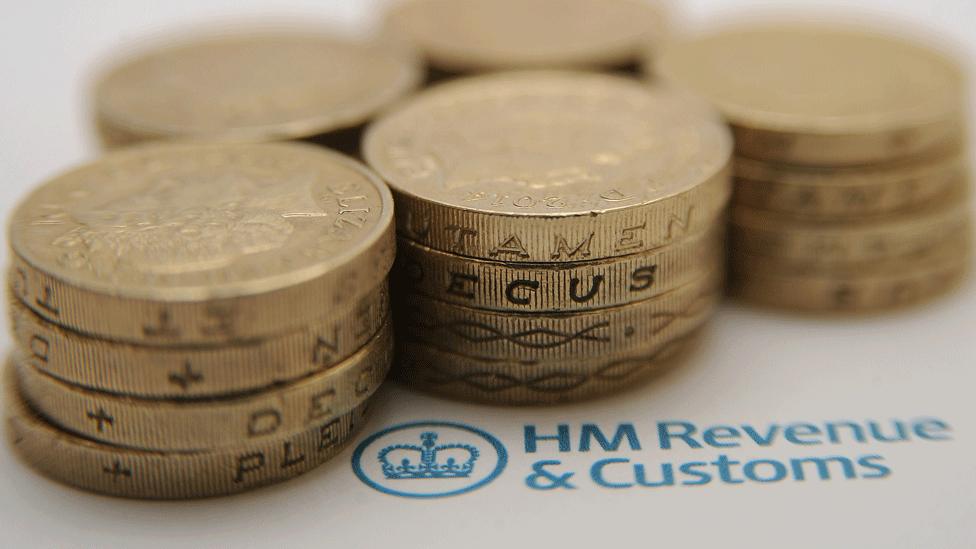Nicola Sturgeon: Scotland 'could lose £30m a year from 50p tax'
- Published
Nicola Sturgeon said: "We will judge 50p tax issue year to year"
Raising the top rate of income tax to 50p straight away would see Scotland lose up to £30m a year, Nicola Sturgeon has said.
The first minister was quizzed on the BBC's Good Morning Scotland radio programme as part of a series of party leader interviews.
The SNP leader said she would not rule out an increase in the future.
She said she would get economic advisers to look at the risks involved and judge it on a year-by-year basis.
There is a concern that the top 1% of earners, who pay more than a fifth of the income tax total, are often more mobile.
If Scotland's taxes go up there would be an incentive to move their tax affairs.
Voters go to the polls on 5 May to elect their next MSPs.
The Scottish Parliament will have the ability to set income tax rates and bands from 1 April next year, making the issue key in the run-up to the election.
Speaking to presenter Gary Robertson, Ms Sturgeon said: "I've said I want to see a 50p tax rate. I don't believe the 50p tax rate should have been lowered to 45p.
"But I've got analysis prepared by civil servants that says if we do that right now then, within the current devolved powers, in Scotland alone then that could see us not raise additional revenue but lose us up to £30m a year.
"The reason for that is that while we have the power to set tax rates we don't have power over income tax avoidance. What I have said is we won't do that in the first year.
"I will task the council of economic advisers to look at this on an annual basis to determine whether or not there are ways in which we can mitigate that risk."
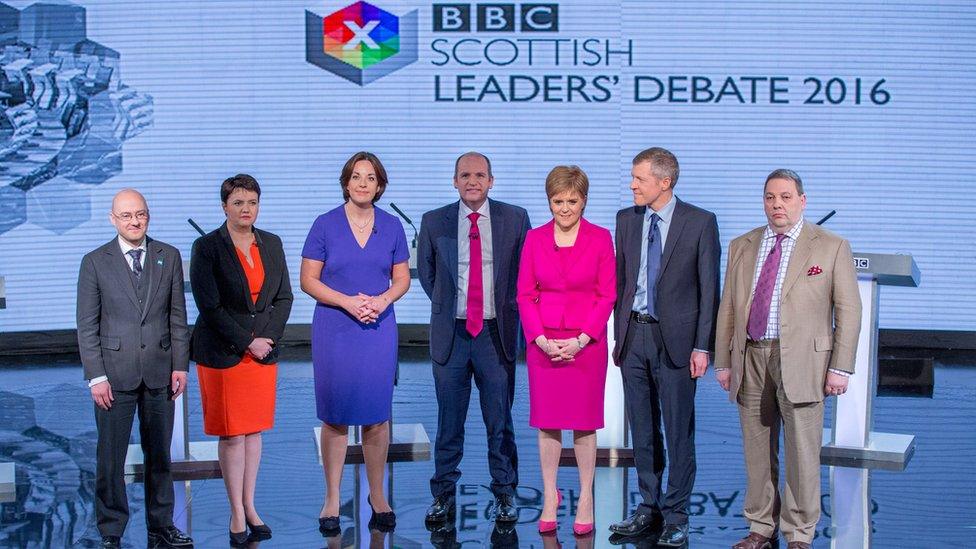
Income tax featured heavily in the BBC's party leaders debate last week
She added: "It makes no sense to propose a tax measure knowing that it might reduce the amount of revenue we have to spend on our public services."
The SNP leader was also asked about issues including education, the controversial named person scheme and independence.
She said the SNP's programme for government was "ambitious" and builds on the past nine years, with education and health as her main priorities.
Asked about teacher numbers, she said: "We have made money available in both of our last two budgets to maintain teacher numbers. If you take probationer teachers for example, in each of the last five years the numbers have increased.
"In the year that we are about to go into there will be around 3,500 which is 66% above the level in 2011. And teacher unemployment is much lower."
During the interview, the first minister also said no parent would be required to pay any attention to a named person.
The scheme would allow a named person - usually a senior teacher - to provide advice, information or support where appropriate to promote, support or safeguard the wellbeing of youngsters under the age of 18.
'Patiently and respectfully'
Ms Sturgeon said: "If a young person wants advice, they are entitled to go to a named person.
"If a parent wants advice from a named person, they're entitled to get that advice. But a parent doesn't have to follow that advice.
"It's an entitlement in that sense, not an obligation."
Asked if parents could opt out, she said: "Every young person will have a named person. It is a universal service, a universal entitlement."
In her speech to her party conference earlier this month, Ms Sturgeon announced plans for a fresh campaign for independence.
Former SNP leader Alex Salmond has since called for a new look at the currency options for an independent Scotland.
Asked about this, Ms Sturgeon said: "I think we need to consider all aspects of the proposition we put forward.
"We did very well. During the referendum campaign the case for independence strengthened and won more and more support. We came very close to winning but we didn't win.
"I do want to build and win the case for independence. We will do that patiently and respectfully."
She added: "We will look again at all issues but I am not going to sit here and say what we would propose in a future referendum, that will depend on our reflections.
Elsewhere on the campaign trail, the Conservatives, Liberal Democrats and Labour are focusing on education and childcare, while the Scottish Greens set out their policy on income tax and proposals for local tax reform.
- Published29 March 2016
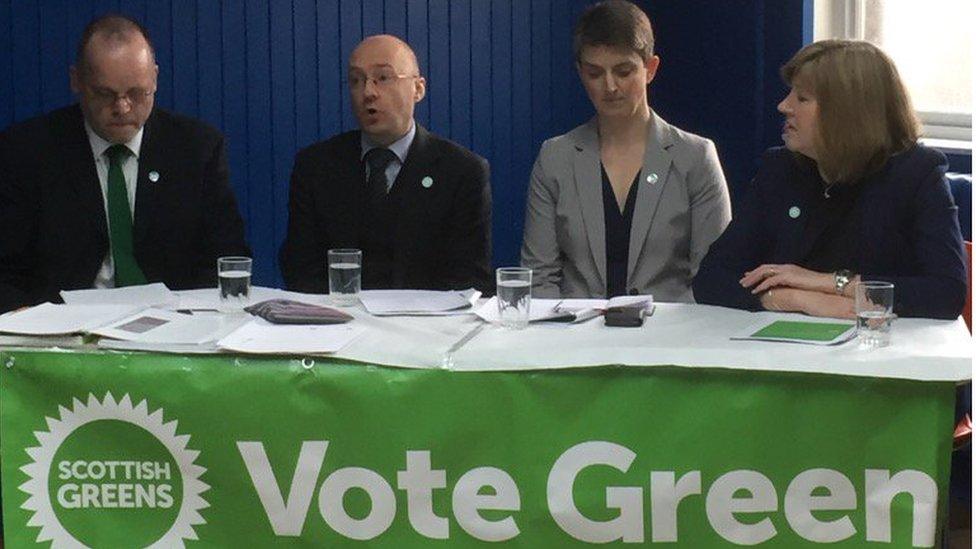
- Published29 March 2016
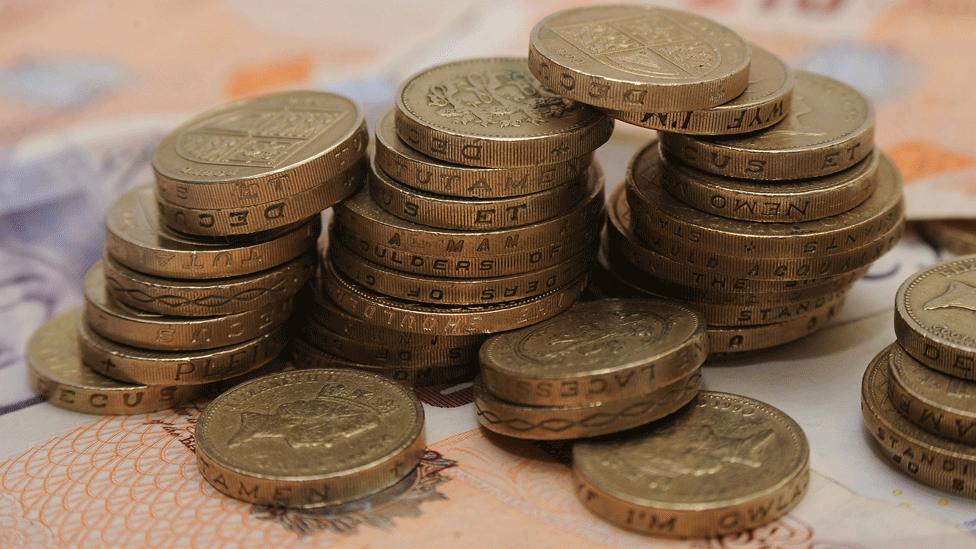
- Published28 March 2016
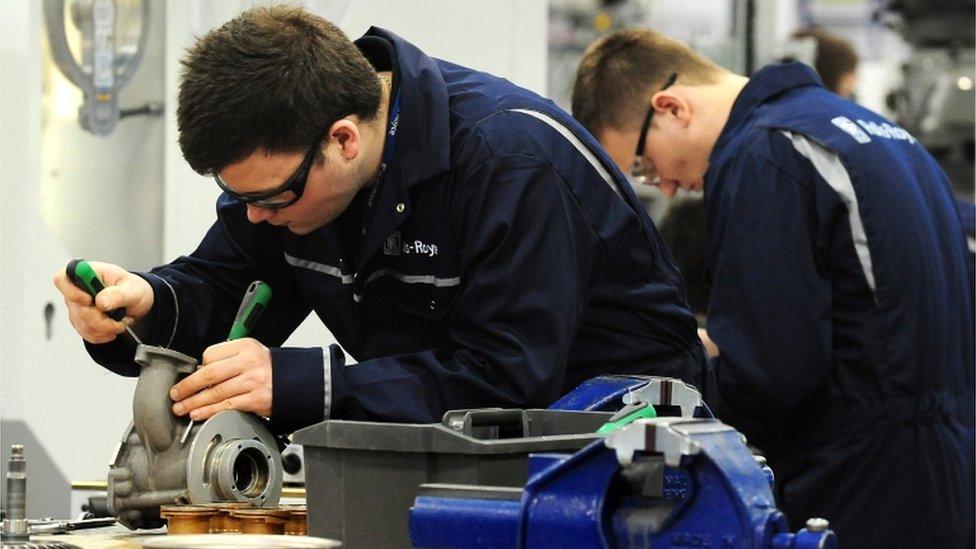
- Published24 March 2016
